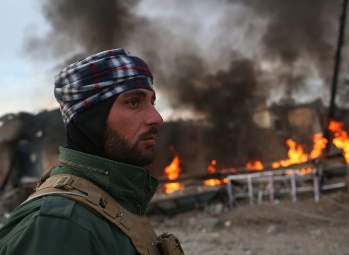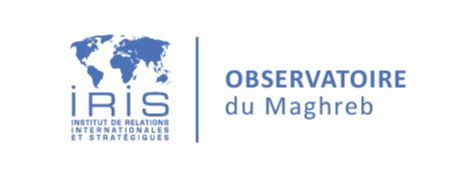LATEST ANALYSIS:

The Fallacy of a US Withdrawal from the Middle East
Amid recent Chinese diplomatic developments, Washington’s role as the most powerful external military actor remains unchanged. James M. Dorsey unravels the contemporary state of play in The Turbulent World.

The Kurds fighting the Isis resistance
Will the forgotten Kurds splinter from Iraq? The price is high, but the dream is strong. Meanwhile, the threat of ISIS lingers in Iraqi caves and Baghdad punishes the KRG’s attempts to escape its orbit… David Patrikarakos writes for Unherd.

The New Tunisian Order
Umberto Profazio explores Tunisian President Kais Saied’s gradual dismantling of one of the most progressive constitutions of the Middle East and North Africa (MENA) and the geopolitical implications of this slide into authoritarianism for IRIS.

Saudi nationalism and the end of Pax Americana
After turbulent years of aligning along sectarian divisions, the Middle East is getting back to its comfort zone: authoritarian nationalism. But this time, the US isn't in the centre picture. Arthur Snell explores in Not all Doom.

Putting Hindu Nationalists on the Spot
As Hindu nationalists in government announce themselves at war against an ‘enemy within’, the Supreme Court and Indian Muslims call for an end to hate speech. Meanwhile, international Muslim civil society organisation Nahdlatul Ulama mulls over its approach… James M. Dorsey for the South Asia Journal.

The "Need for Chaos" Voter
New research has discovered a new personality trait called "need for chaos." They just want to watch the world burn and they're happy to help democracy end in flames. We must understand them. Brian Klaas explores in the Garden of Forking Paths.

Unleashing an Iranian tiger
As Saudi Arabia-Iran relations thaw, what are the economic implications? If an Iranian rise and the end of US sanctions is inevitable, what role will Riadh play? James M. Dorsey explains for the South Asia Post.

Jihadists target Africa and Afghanistan, but also eye China and Russia
As the locus of Islamist militancy shifts to the African Sahel and Afghanistan in Central Asia, Russia and China find themselves in the crosshairs… James M. Dorsey explores in the Times of Israel.

Ukraine: The Crucial Year?
Ukraine’s upcoming counteroffensive could be its last chance to retake Russian-occupied territory. Is this the crucial year for Ukraine? Arthur Snell explores.

The Missing Covid Origin Debate
Did Covid-19 come from a raccoon dog or a lab leak? Brian Klaas explores how a more important debate has been hidden from public view in The Garden of Forking Paths…

Rule by Law in Florida
Would President DeSantis be worse for American democracy than President Trump? Brian Klaas investigates for The Atlantic…

Mosul and the Law of the Cigarette
Will Mosul recover? Is it better to have freedom or stability? Twenty years after the invasion, David Patrikarikos writes for Unherd.

The UAE's shift in Libya, where Abu Dhabi is warming ties with Tripoli, is in line with the pragmatism adopted since the end of the Trump administration but will hardly go beyond politics and business. Umberto Profazio writes for the NATO Defense College Foundation.

What does the Saudi-Iran deal mean for Israel?
Riyadh and Tehran have signed a China negotiated deal to resume diplomatic relations. What does their rapprochement and China’s newly emboldened role in the Middle East mean for Israel? David Patrikarakos writes for the Jewish Chronicle.

Iraq and Brexit: A Common Thread of Hubris
Alexandra Hall Hall argues that both the Iraq War and Brexit were driven more by ideological conviction than rational analysis and against the advice of most experts in the Byline Times.

Inside Ukraine’s Nonviolent Resistance: Chatbots, Yellow Paint, and Payoffs
David Patrikarakos write about how Ukraine’s digital resistance fights behind Russian lines for The Atlantic.

The Hidden Plight of the Street Level Bureaucrat
Most encounters with government happen with “street-level bureaucrats.” Brian Klaas tries to figure out what it’s like to be one for The Garden of Forking Paths.

Why do we get the wrong leaders?
Brian Klaas’ lecture for Science & Cocktails on why we get the wrong leaders and what can be done to put better ones in charge.

Twenty years on... memories of the Iraq War
Arthur Snell reflects on the Iraq war and its legacy of inflicting suffering and chaos throughout the world for Not All Doom.

We need sting operations for politicians
In The Garden of Forking Paths, Brian Klaas argues that corruption, lobbying, and improper political influence plague our political systems, wasting money and creating bad governance, and that randomised sting operations could expose this.

